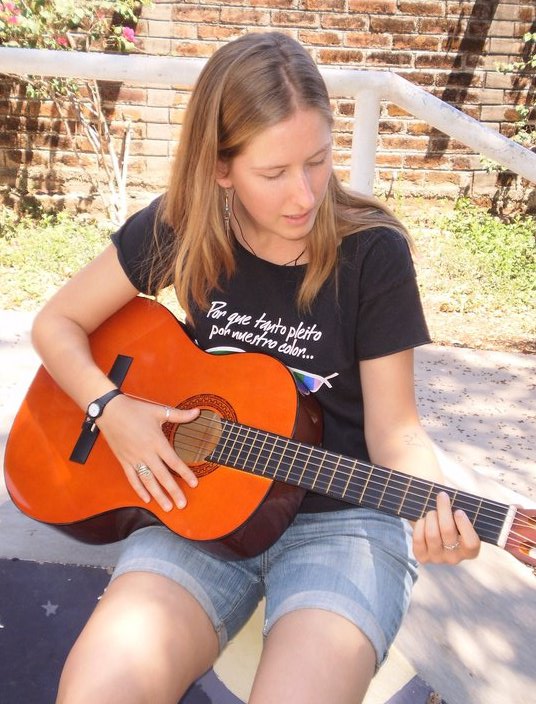What does it mean to be called the ¨sons and daughters of God¨when you attempts at peacemaking bring about your own or others´deaths?
At the top of the mini-mountain near Proyecto Linguistico -- Baul -- there was a worship service of some sort taking place with a large number of indigenous people and a band set-up. The leader opened up the service, which seemed to materialize right as we sat down in the pavilion in which it took place, with the Sermon on the Mount. More on this in a moment.
I have been in Guatemala five days already. Two of them we (the 19 of us who are students, Joe our group leader, Rebekah our semester intern, and Ruth and Fidel the Guatemalans who will be with us during this leg of the semester) spent in Guatemala City. One of the first descriptions we got was that we were spending two nights in a¨post-war city.¨ That, of course, refers to the thirty-six years of civil war that permeated Guatemala from 1960 until 1996.
Yet the Peace Accords have not been a panacea by any means. Violence and crime are still regular parts of everyday life. Proyecto Linguistico (PLQ) intentionally places female students in home-stays closer to the school than their male colleagues so that there will be people to walk us home after dark, because being a woman places one at risk.
Right now we are in Xela (the Mayan name for Quetzaltenango, which is an Aztec word), short for Xelaju (pronounced ¨Shayla-WHO¨ or Shayla). It is smaller, somewhat safer, and more colonial than Guatemala City. We are getting to know the city, which sits in a basin encircled by mountains and volcanoes. We have been going through orientation information and simply getting to know each other, as we´ll be together for the better part of four months.
I am excited to learn more about the indigenous community here, as the indigenous communities in my own home have played such an important role in my life so far. Fidel, one of our leaders, is from one of the Mayan communities between Xela and Guatemala City (about a 5-hour drive). In three weeks we will spend one week in a rural setting, mostly with indigenous people, so this will be a good chance to learn a lot.
Without much more in the way of time, I am back at where I began. What does ¨they shall inherit the earth¨mean to a people whose land has been taken away countless times over the centuries? Whose parents, sisters and brothers, and friends have been killed for their land?
Injunctions to turn the other cheek and let abusers pluck out one´s beard?
If these are to be taken at face value, they are not worth much in the way of ¨good news.¨
I suppose my job while I´m here is to see more of how they are in fact the good news as they were preached to people in all too similar a situation, millenia ago and worlds away.
Saturday, August 30, 2008
Subscribe to:
Post Comments (Atom)

No comments:
Post a Comment